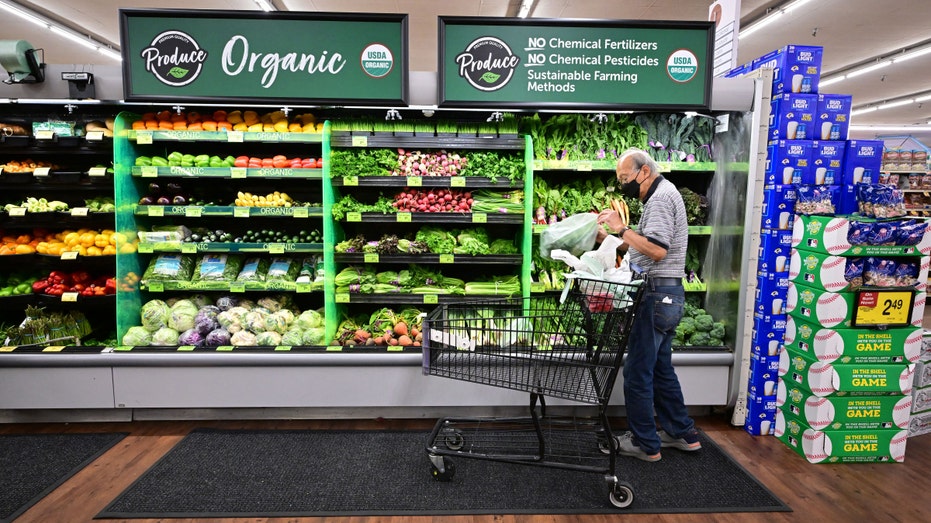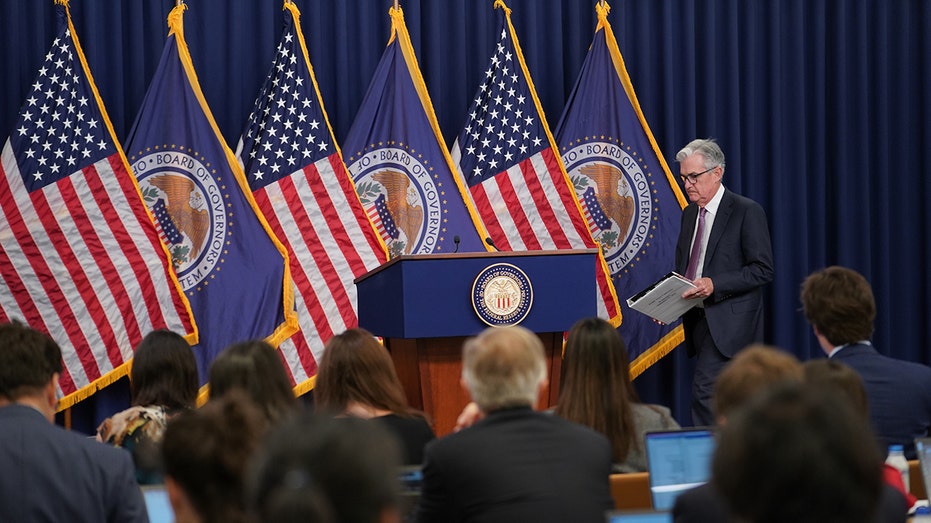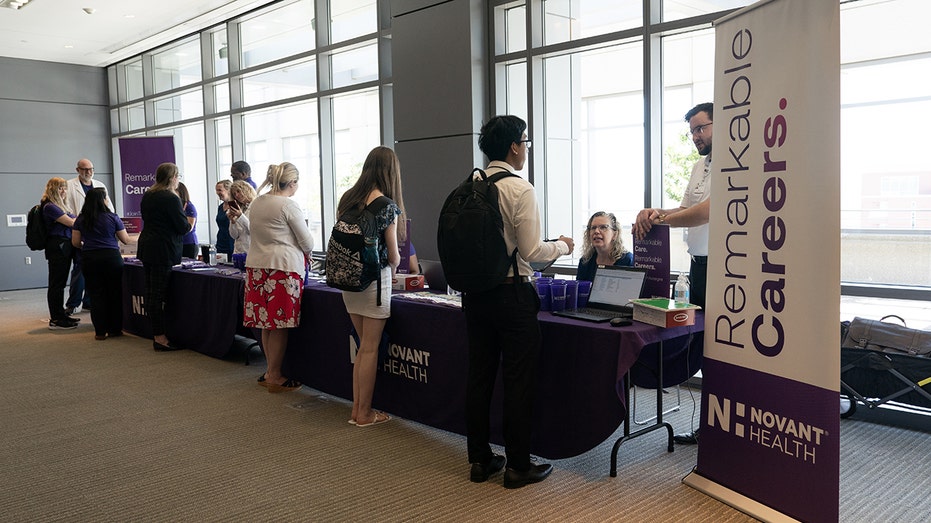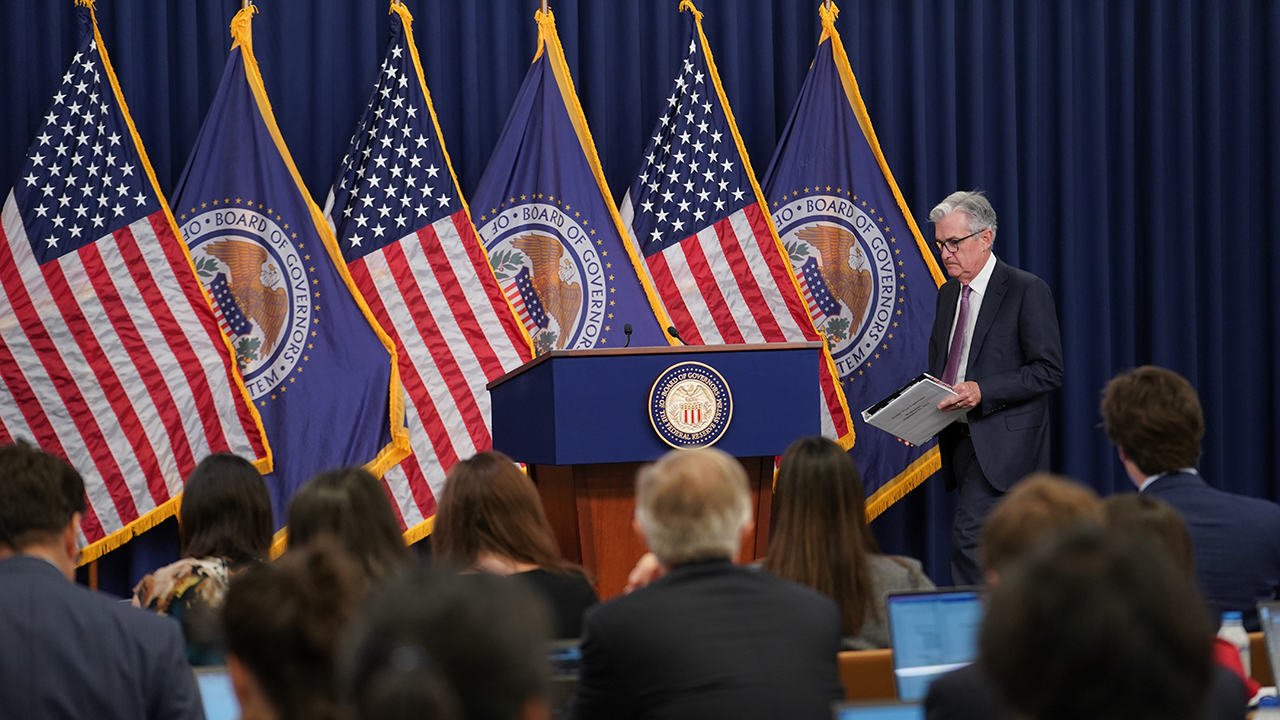Americans bracing for higher inflation in the long term, NY Fed survey shows
Consumers see inflation remaining high over next few years: New York Fed survey
Fed is willing to go ‘pretty far’ to tame inflation: Thomas Hoenig
Former Kansas City Federal Reserve Bank President and CEO Thomas Hoenig joined ‘Mornings with Maria’ to discuss the Federal Reserve’s forthcoming rate hike decision.
Americans are bracing for higher inflation over the next few years even as they anticipate a drop in consumer prices over the short term, according to a key Federal Reserve Bank of New York survey published Monday.
The median expectation is that the inflation rate will be up 4.4% one year from now, according to the New York Federal Reserve's Survey of Consumer Expectations, down from 4.7% in March.
But consumers anticipate that inflation will remain sticky in coming years, according to the survey, estimating that inflation will hover around 2.9% three years from now and 2.6% five years from now. By comparison, central bank policymakers projected in their latest economic forecasts that inflation will fall to 2.5% next year.
Americans expect the cost of homes and gasoline to climb over the next year, but they projected declines in the price of college tuition and food.
BANKING CRISIS THREATENS TO IGNITE CREDIT CRUNCH OF US HOUSEHOLDS: WHAT TO KNOW

A shopper looks at organic produce at a supermarket in Montebello, California, on Aug. 23, 2022. ((Photo by FREDERIC J. BROWN/AFP via Getty Images) / Getty Images)
The survey, which is based on a rotating panel of 1,300 households, plays a critical role in determining how Fed policymakers respond to the inflation crisis. That is because actual inflation depends, at least in part, on what consumers think it will be. It is sort of a self-fulfilling prophecy – if everyone expects prices to rise by 3% in the year, that signals to businesses that they can increase prices by at least 3%. Workers, in turn, will want a 3% pay raise to offset the rising costs.
Chairman Jerome Powell has repeatedly stressed that policymakers are committed to wrangling inflation back to the Fed's 2% target goal.
"Ultimately, we're not looking to get to 3% and then drop our tools," Powell told reporters last week after the Fed's two-day meeting. "We have a goal of getting to 2%. We think it's going to take some time. We don't think it will be a smooth process. I think we're going to need to stay at this for a while."
FED RAISES INTEREST RATES A QUARTER POINT, HINTS AT POSSIBLE PAUSE

Federal Reserve Chairman Jerome Powell arrives to speak during a news conference following a Federal Open Market Committee meeting in Washington, D.C., on Sept 21, 2022. (Photographer: Sarah Silbiger/Bloomberg via Getty Images / Getty Images)
Policymakers already lifted the benchmark federal funds rate 10 consecutive times and opened the door to pausing the tightening cycle at their next meeting in June.
The latest inflation expectation projections come just two days before the release of new consumer price index data, which is expected to show the growing stickiness of higher inflation: Economists surveyed by Refinitiv expect that inflation rose 0.1% from the previous month and 5% from the previous year, more than double the pre-pandemic average.
More concerning is that economists expect core inflation – which excludes the more volatile measurements of food and energy – to increase 0.4% for the month and 5.6% from the previous year.
ARE TECH LAYOFFS THE CANARY IN THE US JOBS MARKET?

Attendees at a healthcare career fair at Cape Fear Community College in Wilmington, North Carolina on Wednesday, Feb. 28, 2023. (Photographer: Allison Joyce/ Bloomberg / Getty Images)
The report also found that more Americans are feeling pessimistic about the outlook for the labor market.
Mean unemployment expectations – or the probability that U.S. unemployment will be higher one year from now – increased by 1.1 percentage point to 41.8% in April, according to the survey. That is up from the 12-month trailing average of 40.2%.
GET FOX BUSINESS ON THE GO BY CLICKING HERE
At the same time, the mean perceived probability of losing one's job in the next 12 months jumped by 0.8 percentage point to 12.2%.
Should they lose their job, more Americans are worried they will be unable to find a replacement: The mean perceived probability of finding a job dropped from 57.6% in March to 55.2% in April, the lowest reading since September 2021.





















